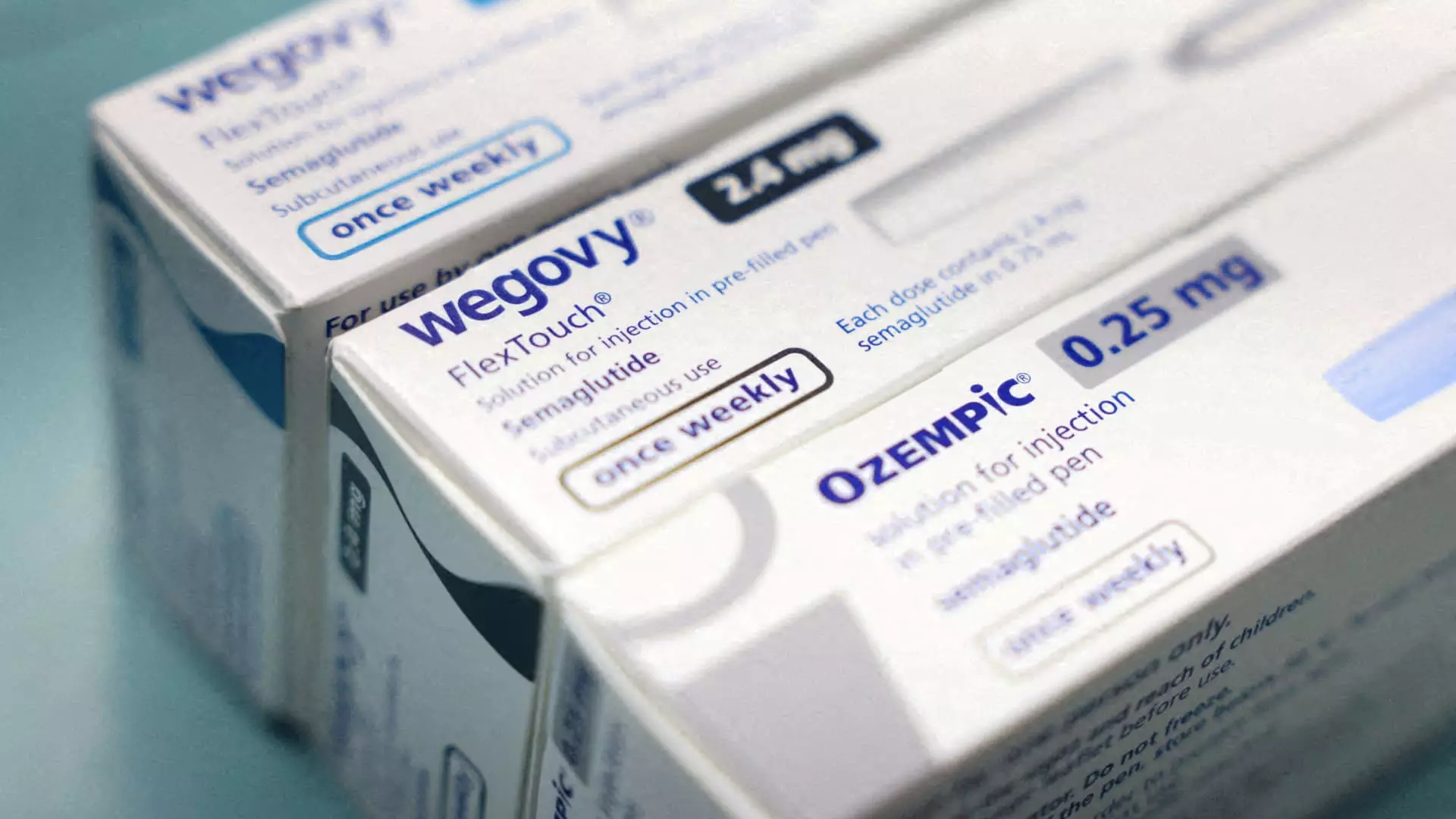The recent announcement by the U.S. Food and Drug Administration (FDA) stating that the shortage of Novo Nordisk’s semaglutide injections—Wegovy for weight loss and Ozempic for diabetes treatment—has finally been resolved is a significant development. This shortage, which persisted for over two years, has had profound implications for patients reliant on these critical medications. The FDA’s resolution not only marks a return to normalcy for these products but also signals potential changes in the market for compounded alternatives that have emerged in the meantime.
Compounding pharmacies have played a vital role during the semaglutide shortage, filling the gap for patients unable to access FDA-approved versions of Wegovy and Ozempic. These pharmacies have produced lower-cost compounded versions, stepping in to serve a population desperate for effective treatment options. However, with the FDA’s new declaration, the landscape for these unapproved alternatives faces significant upheaval. Compounding pharmacies are now required to cease production of these compounded semaglutide formulations in the coming months, which may lead to reduced options for patients who depended on these substitutes.
The FDA’s decision is a double-edged sword; while it empowers patients to access FDA-approved medications, it also undermines the accessibility of these life-changing treatments for those who may have found a cheaper, albeit unapproved, solution. The next few months will be critical as patients navigate this transitional phase, facing uncertainty about their ongoing access to semaglutide-based treatments.
Financial markets have already responded to the FDA’s announcements. The stock price of Novo Nordisk rose by approximately 5%, reflecting investor confidence in the company’s renewed supply capabilities and potential future profitability in the competitive weight loss drug sector. In contrast, the shares of Hims & Hers—a telehealth company that had been offering compounded versions of Wegovy and Ozempic—plummeted by more than 25%. This stark decline highlights the immediate repercussions of the FDA’s resolution on companies that had thrived in the absence of the original products.
As Novo Nordisk rebounds, it positions itself to better compete against other market players, particularly Eli Lilly, whose own products have been indirectly supported by the semaglutide shortage. Eli Lilly’s recent successes, including the FDA’s resolution on tirzepatide—another weight loss and diabetes management treatment—further complicate the competitive landscape as both companies seek to capture a share of a rapidly expanding market that analysts project could surpass $150 billion annually by 2030.
Safeguarding Patient Health
The FDA’s commitment to ensuring the availability of legitimate medications is underscored by statements from Novo Nordisk executives highlighting the safety risks associated with the compounded versions that have been available. Misinformation about the efficacy and safety of these unapproved medications poses significant risks to patient health. As the FDA and Novo Nordisk call for a return to FDA-approved treatments, it is imperative that patients remain informed about their options and guided through this transition.
The FDA’s announcement also brings to light a crucial issue regarding healthcare coverage. While Ozempic is commonly covered by most health insurance plans, Wegovy, aimed primarily at weight loss, is often not included in coverage offerings, particularly under Medicare. This discrepancy poses financial challenges for patients seeking to obtain effective and safe treatments.
The resolution of the semaglutide shortage not only addresses a pressing healthcare concern but also sets the stage for a new era in the pharmaceutical landscape dominated by weight loss and diabetes management drugs. As manufacturing capacities expand and the FDA continues to enforce regulations, the balance between market competition and patient safety will be carefully scrutinized.
Moving forward, stakeholders across the healthcare spectrum—from pharmaceutical companies to healthcare providers and patients—must work together to ensure that access to effective medications remains a priority. The journey towards sustainable treatment solutions for weight management and diabetes management is far from over, but the recent developments mark a hopeful turning point in an industry that has faced significant challenges.

Leave a Reply